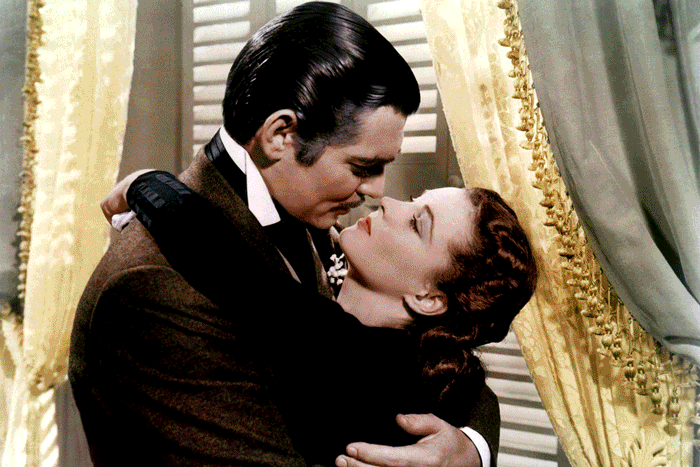How to watch (almost) every Best Picture winner from 1927 through 2022

- Share via
The first thing I noticed in compiling this list is that over 95 years of the Oscars, the writing style and approach to film criticism in The Times has evolved from decade to decade. As interesting and insightful as Edwin Schallert and Philip K. Scheuer were, they often saw movies as an event, rather than art. Some reviews dedicated almost as much space to the happenings at the premiere as they did to the movie itself.
The contemporary age of movie criticism began in 1960s, when the baton was passed to Charles Champlin. I much prefer the sensibility of the modern critics: Champlin, Sheila Benson, Kevin Thomas, Kenneth Turan, Betsy Sharkey and Justin Chang. Plus, their reviews don’t have as many spoilers. (Of course, I may be biased, as I’ve worked with all of them.)
The second aspect I noticed is that, with their first takes on the movies that would go on to win best picture, our critics generally loved the movies that the academy selected. In some cases, they boldly predicted the Oscar. The only real exceptions were “From Here to Eternity” (1953) and “Titanic” (1997).
In his review, Schallert said “From Here to Eternity” had “rough, rugged, brutal appeal,” it made the military “look its worst” and that the famous scene on the beach with Burt Lancaster and Deborah Kerr, caused “the screen to sizzle, and almost going overboard.” (In the 1950s those were to be taken as critiques.)
Turan’s takedown of “Titanic” is one of my favorite reviews linked to here, even though I disagreed with just about everything he wrote. As usual Turan didn’t pull any punches and left no doubt about his opinion of the film and the filmmaker.
There are also plenty of gems to be found in our reviews of these Oscar winners. My favorite was from 1978, when Champlin discovered for the very first time some of the greatest talents in film in “The Deer Hunter.”
The two films that won in the 1920s were “Wings” (1927) a World War I silent film, and “The Broadway Melody” (1928-29), the first “talkie” to win.
1927: ‘Wings’

First Academy Awards: May 1929, for 1927-1928 releases
Running time: 2 hours 19 minutes.
Streaming: Kanopy: Included | Prime Video: Rent/Buy | Apple TV+: Rent/Buy
The spectacle of the season!
“Wings” assumes that designation. It is huge, imposing and at times well-nigh monumental. It is a startling blending of almost bewildering effects, sound and action for which there has so far been no equal.
The picture dramatizes the airplane. There is no other object perhaps that could be linked in a more perfect way mechanically with the present.
The war is the background, but though there has been war picture upon war picture, this is bound by the very character of its aerial panorama.
An enlarged screen is used. Behind the stage, there is the incessant staccato hum and rat-tat-tat in the imitation of the flying craft. Before the vision there is bewildering, dizzy motion. One is lifted virtually from one’s seat in the theater by the massive and overwhelming double effect. Eye and ear are appealed to with a force that is nerve-racking — the simulation of machine gun fire, shrieking shells, thunderous explosives. It is a sensation without parallel in the world of make believe. (Read more) — Edwin Schallert
1929: ‘The Broadway Melody’

Second Academy Awards: April 1930, for 1928-1929 releases
Running time: 1 hour 50 minutes.
Streaming: Prime Video: Rent/Buy | Apple TV+: Rent/Buy
Say it with singing, dancing and harmony. That’s the new language of the screen. Rhythmically, spiritedly, pathetically and gayly, “The Broadway Melody” will make you believe it, even if you don’t.
This is a picture! It’s an eye-opener and and ear-opener. It’s right off the grille of the latest in sound development, and, oh, what a wow!
Ten minutes of it tells the story, here is something absolutely brand new! One can easily say that it is the best talkie yet. In fact, it’s a revolutionary step. (Read more) — Edwin Schallert
More to Read
Only good movies
Get the Indie Focus newsletter, Mark Olsen's weekly guide to the world of cinema.
You may occasionally receive promotional content from the Los Angeles Times.









